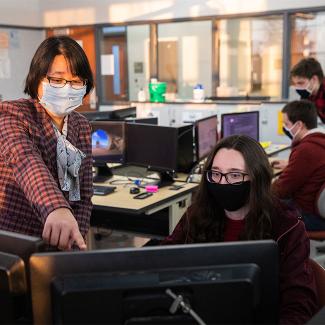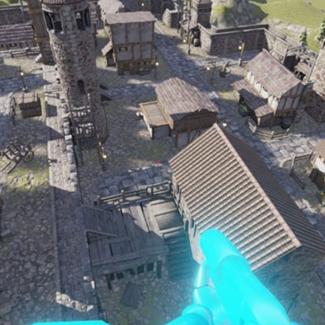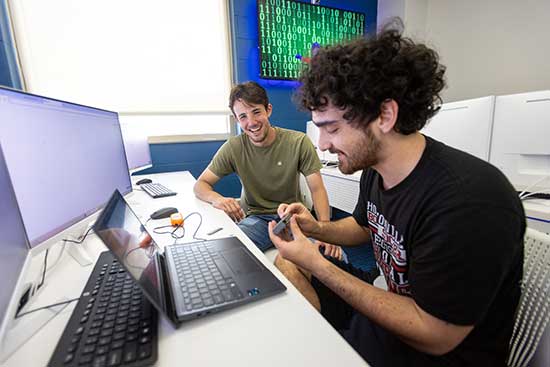What you'll learn as a Cybersecurity major at UW-Platteville
Our Cybersecurity program through the Department of Computer Science and Software Engineering is designed to give you practical hands-on experience in this exciting and in-demand field. You’ll enjoy dedicated lab spaces where you can practice penetration testing, malware analysis, digital forensics, and learn how to counter cyber threats to organizations’ and individual’s data. Our hands-on programming will ensure you’re ready to join the workforce as an IT specialist, digital forensics analyst, and more.
Earn your master's degree in cybersecurity online
In addition to the bachelor’s degree in cybersecurity program offered on campus, you have the option to continue with a master’s degree in cybersecurity online.
Careers in Cybersecurity
While the work that cybersecurity professionals do is closely related to information technology and computer science, cybersecurity jobs are typically more focused on identifying potential flaws or other weak spots that could be exploited by cyber criminals. These experts also focus on strengthening systems, hardware, and software applications to repel potential attacks and ensure that technology remains secure and operational to meet ongoing business needs.
Cybersecurity professionals need to rely on their creative problem-solving skills as much as their technological knowledge about computer architecture, programming, and networking systems.
As cyber crime increases, there is a growing need for skilled workers in this field. Some of the most common career choices for people with a Bachelor or Master of Science in Cybersecurity include:
- Cybersecurity analyst
- Security engineer
- Security architect
- Information security analyst
- CISO/CSO
- Systems administrator
- Network architect
- IT director
- Forensic investigator
- Systems auditor
Cybersecurity professionals are needed in nearly every industry today, as computer networks and systems have become prevalent across industry sectors. Most cybersecurity workers spend their days in office settings. In some cases, people in this field work more than 40 hours/week and are on call outside of typical office hours, so they can promptly respond to any attempted hacks or breaches of their employers’ systems.

More than Memorization
UW-Platteville stands apart from other cybersecurity degree programs. Undergraduate students and those enrolled in cybersecurity graduate programs have access to hands-on, experiential learning opportunities designed to supplement classroom lectures. This student-centric approach will prepare you to succeed in your future career as a cybersecurity professional.






